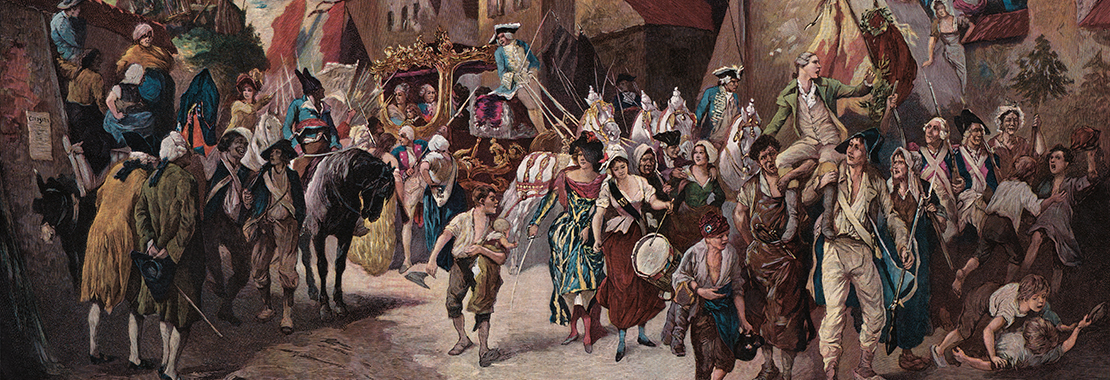When my father, Jackson Spielvogel, first wrote the textbook, “Western Civilization,” now in its 12th edition, he hoped to craft a singular narrative that organized the complexities and contradictions of a vast historical legacy. Decades of teaching large survey courses at Penn State University led my father to value the power of primary sources in stimulating the imagination and critical faculties of his students. Today, over thirty years since the first edition of Spielvogel’s best-selling text, we launch “Major Problems in Western Civilization,” a new, first edition designed to enhance our understanding of Western Civilization at a time when its significance and relevance is being reevaluated.
Why study Western Civilization?
With the advent of globalization, many have questioned the usefulness of historical models centered on the “West” — which often translates to Europe and the United States. While today’s scholars rightly emphasize global connections and diversity to combat historical biases and colonialist (imperialist) mindsets, the centrality of Western Civilization as a foundational model for human development cannot be overstated. The people, writings, and culture that formed the core of the “Western tradition” laid the foundation for many of today’s institutions and contemporary efforts to reshape them. The value in studying Western Civilization includes understanding the development of our current systems — political, judicial, economic, educational, religious, scientific, and cultural — and how they shape our lives, both in the United States and across the globe.
Western ideals
The legislative systems of the United States and European nations are governed by the rule of democracy, ideals formed to challenge historic power structures and hierarchies. New concepts of sovereignty were proposed during the Enlightenment and American and French revolutions, particularly the right of the people to govern themselves. The idea that a nation, itself a new concept in the nineteenth century, should be governed by the people and not by a divinely ordained hereditary kingship, and that individuals owned the right to participate in choosing who led their government, were radical ideas. These Western ideals led to the formation of nations supporting democratic norms, free and fair elections, capitalist economies, robust educational systems, freedom of speech and the press, fair judicial processes, religious tolerance, and open cultural expression.
However, despite the promise of freedom, many under the rule of European and American governments were forced to support the needs of the country, often suffering subjugation at the hands of racist ideologies and colonial networks. The provisional governments held by Western leaders in Southeast Asia, Asia, Africa, the Middle East, and Latin America further attest to the complexity of the Western Civilization narrative and problems inherent when freedom is not accessible to all.
Major Problems in Western Civilization: a complex and diverse first edition
In “Major Problems in Western Civilization,” students will explore the words of those who built these systems and institutions. They will learn to place people and places within historical contexts by reading first-hand accounts of those who shaped, and were shaped by, Western influence. Students will encounter poetry and art that portray the human condition, religious relics and structures embodying spiritual devotion, and texts and artworks that challenged political regimes and social norms. Letters to loved ones, tales of heroic feats, law codes and novels all capture the spirit of the age. This text introduces students to these primary sources, providing a greater understanding of how history has been crafted while stimulating a nuanced consideration of its legacy.
As students dive into this diverse narrative, they will be met by the contradictions of history. For example, while technology can advance humanity, it can also destroy it. Albert Einstein’s work on the atom revolutionized the way we viewed the world, but it also led to our greatest potential weapon, the atomic bomb. The Industrial Revolution of the eighteenth and nineteenth centuries gave us the combustible engine, allowing us to more easily travel and produce goods that have enriched many people’s lives. This economic system of mechanized production developed into a capitalist financial system that has dominated not only the West, but the entire planet.
The student takeaway
What has been the cost of these developments on the environment, global economy, and public health? Western advancements in production, consumption, transportation, and communication have fueled globalization. However, we cannot understand the impact of these developments, or our current perspectives, without considering their origins. Similarly, the democratic ideals noted above represent attempts to ensure freedom from the tyranny that too often plagued human history.
Yet the idea of sovereignty remains contested today, and the importance of studying Western Civilization stems from its relevancy, particularly during a time when ideas of nationhood are constantly revised. What freedom looks like remains an open question for today’s students, and their role in defining freedom can only be accomplished by understanding the systems and factors that bore its very premise. “Major Problems in Western Civilization” aims to help students take a purposeful step towards reaching this goal.
Written by Kathryn Spielvogel, M.A. Pennsylvania State University, co-author of “Major Problems in Western Civilization,” 1e.
Kathryn Spielvogel earned a B.A. in history, and M.A. in art history from The Pennsylvania State University. She continued her graduate studies in history at the University at Buffalo, SUNY, before working as a research editor on history textbooks for the past fifteen years. Passionate about historic preservation and economic development, Kathryn volunteers for several non-profit organizations while renovating historic homes and commercial buildings throughout Pennsylvania.


